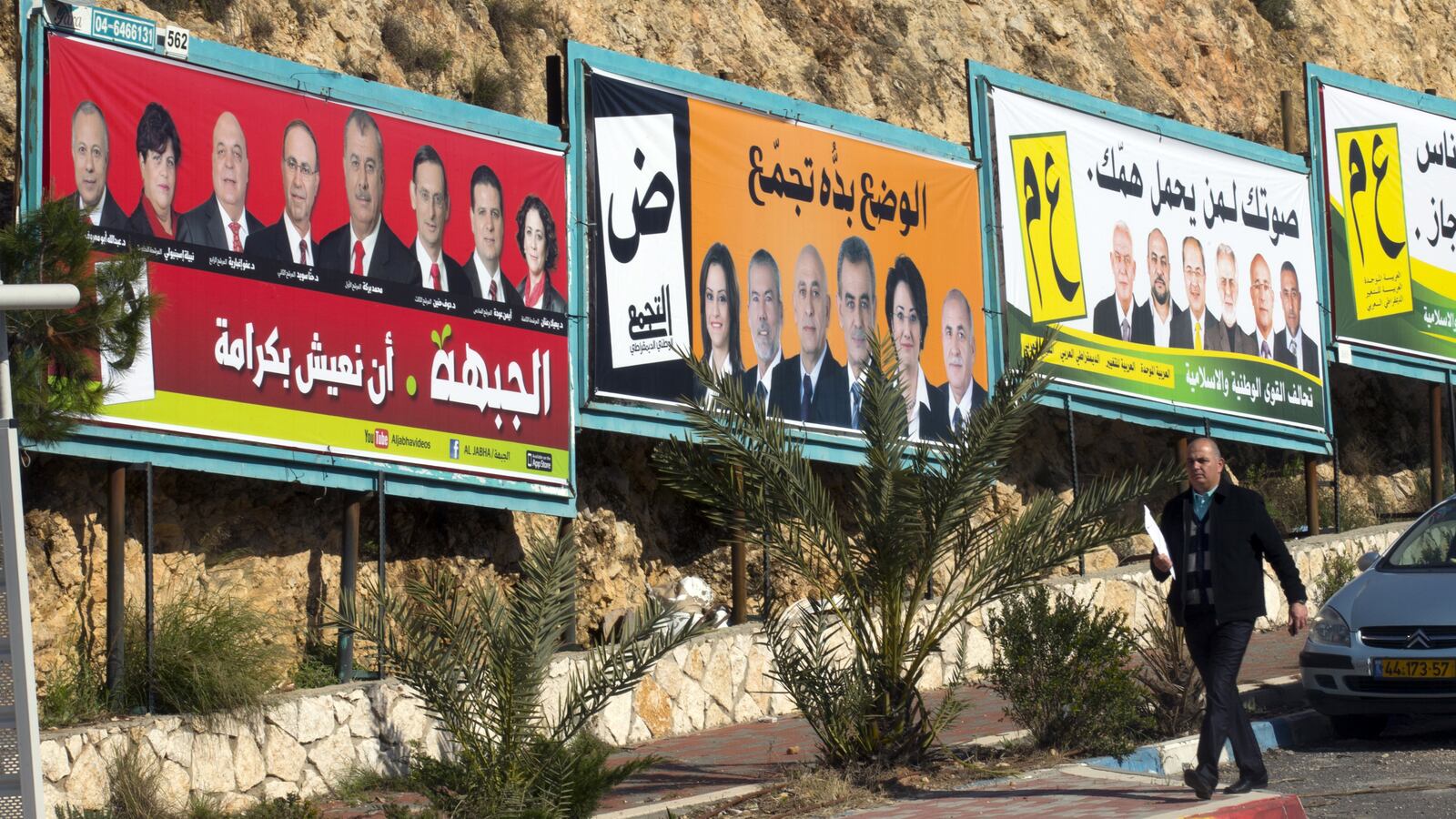
International interest in Israel's election tomorrow has fallen short of previous races, likely due to the primacy and dominance of the Netanyahu bloc—which has been a foregone development for a long time. But at least one international organization—the Arab League—made an unprecedented statement about the polls even as a greater-than-usual number of Palestinian-Israelis feel the crushing pointlessness of their participation amid the rise of anti-Arab parties. The Palestine Division of the Cairo-based League issued a statement encouraging greater voter turnout among Palestinian-Israelis. It reads in part:
According to the public opinion polls that have been conducted in Israel, the radical right is expected to obtain a majority [of seats in the Knesset]. The radical right consists of right-wing groups that do not want peace; they refuse to accept the Other and they regard Israeli Arabs as a threat to the country.
This unprecedented statement is significant for a few reasons. First, it highlights the new Egyptian conception of how the relationship with Israel should be conducted in the post-revolutionary era. The statement carries an assumption of equal standing between the two states. Egypt is no longer the quiescent subordinate partner it once was. The goal now is the reattainment of Arab stewardship and regional influence—including within Israel. And while it is noteworthy that the authors explicitly claim that they do not seek to interfere in Israeli politics, the very statement is an act of (welcome) intervention.
The voter-turnout statement is also meaningful for what it signifies. For decades, Palestinian-Israelis were isolated from other Palestinians and the general Arab world. Their experience with martial law worked to alienate them from their culture and people—as it was intended to do. That began to change in the late 1980s with the Intifada. More than a dozen years later, the murder of thirteen Palestinian-Israelis by Jewish police acted as a catalyst for the revival of Palestinianism amongst Palestinian-Israelis. The intervening years have seen them re-engage the struggle against Israeli policies on both sides of the Green Line. The Arab League statement thus marks the emergence of a more complete relationship of mutual affinity.
Finally, the statement suggests that the Arab League understands that the Europeans are limp and that the Americans are partisans—and that desperate times call for imaginative thinking.






